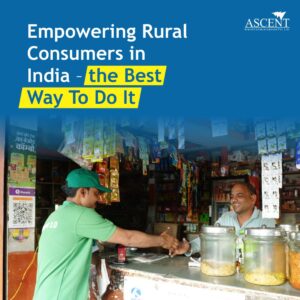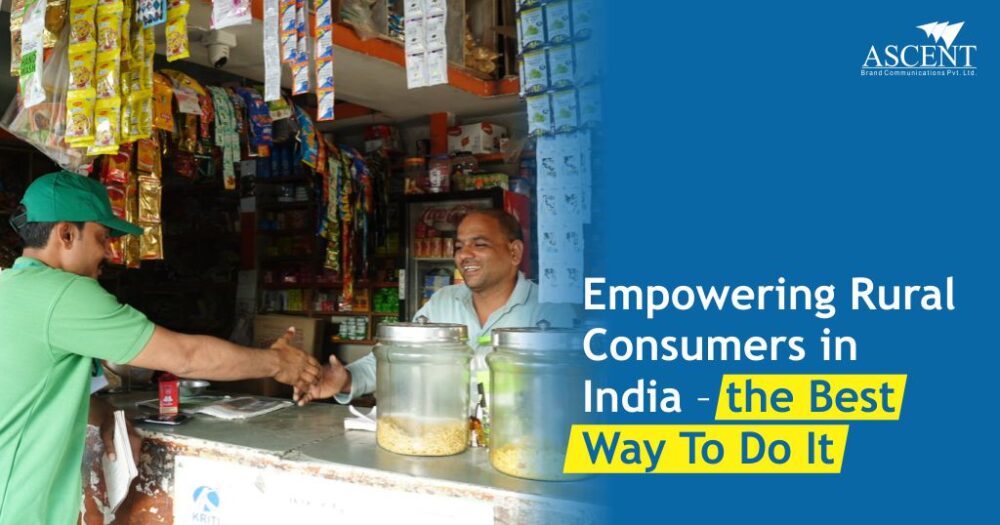A rural consumer refers to someone who resides in a rural area and purchases goods and services for personal or household use. These consumers typically have distinct needs, preferences, and purchasing behaviours as compared to urban consumers due to factors such as lower income levels, limited access to infrastructure, and different lifestyle patterns.
Difficulties of Rural Marketing
Marketing in rural areas poses unique challenges compared to urban or suburban areas. Some of the biggest difficulties include:
- Limited Infrastructure: Rural areas often lack adequate infrastructure such as internet connectivity, roads, and transportation, making it harder to reach potential customers and distribute products.
- Sparse Population: Rural areas typically have lower population densities, meaning fewer potential customers in a given area. This makes it more challenging to achieve economies of scale and may require different marketing strategies to reach dispersed audiences.
- Cultural Differences: Rural communities may have distinct cultural norms, values, and preferences compared to urban areas. Understanding and adapting to these differences is crucial for effective marketing.
- Access to Information: Access to information and education levels may be lower in rural areas, affecting how people perceive and respond to marketing messages.
- Distribution Challenges: Limited access to distribution channels and retailers in rural marketing areas can make it difficult to get products into the hands of consumers.
- Seasonal Variability: Economic activities in rural areas can be highly seasonal, depending on factors like agriculture and tourism. Marketers need to account for these fluctuations in demand and adjust their strategies accordingly.
Overcoming the above challenges often requires a tailored approach that takes into account the specific characteristics and needs of rural communities. This involves leveraging local networks, using traditional media channels, and developing products and services that meet the unique requirements of rural consumers.
It also involves improving access to education about consumer rights, enhancing infrastructure for better market access, promoting digital literacy for online transactions, and ensuring fair pricing and quality standards for rural goods and services.
Empowering individuals with knowledge and resources to make informed choices and advocate for their rights in the marketplace is key.

Simply put, it is providing rural consumers with access to information, education, and resources. The main ways rural consumers in India can be empowered include:
- Education and Awareness: Offer workshops, seminars, and training programs to educate rural consumers about their rights, available products, and services.
- Access to Technology: Provide access to technology such as smartphones and the internet, enabling rural consumers to access information, compare prices, and make informed decisions.
- Financial Inclusion: Promote financial literacy and provide access to banking services, microfinance, and credit facilities to empower rural consumers economically.
- Infrastructure Development: Improve infrastructure such as roads, transportation, and electricity to enhance market access and enable rural consumers to engage in trade and commerce more effectively.
- Local Entrepreneurship: Encourage the development of local businesses and cooperatives, empowering rural consumers to become producers and sellers of goods and services.
- Health and Nutrition Programs: Implement programs that focus on improving health and nutrition awareness, ensuring rural consumers have access to affordable and nutritious food options.
- Policy Support: Advocate for policies that protect the rights and interests of rural consumers, including fair pricing, quality standards, and access to essential services.
- Community Engagement: Foster community participation and empowerment through platforms such as self-help groups and community-based organizations, enabling rural consumers to voice their concerns and influence decision-making processes.
These initiatives can collectively empower rural consumers by addressing various aspects of their needs and challenges.
How Can Rural Marketing Agencies Make A Difference?
Rural marketing agencies can assist rural consumers by understanding their unique needs, lifestyle, and preferences. They can develop tailored marketing strategies that resonate with rural audiences, leveraging local language, culture, and channels such as community events, local media, and word-of-mouth.
Additionally, agencies can help rural businesses improve their visibility through digital marketing, ensuring they reach a wider audience beyond their immediate vicinity.
For more on rural marketing case studies click here

















